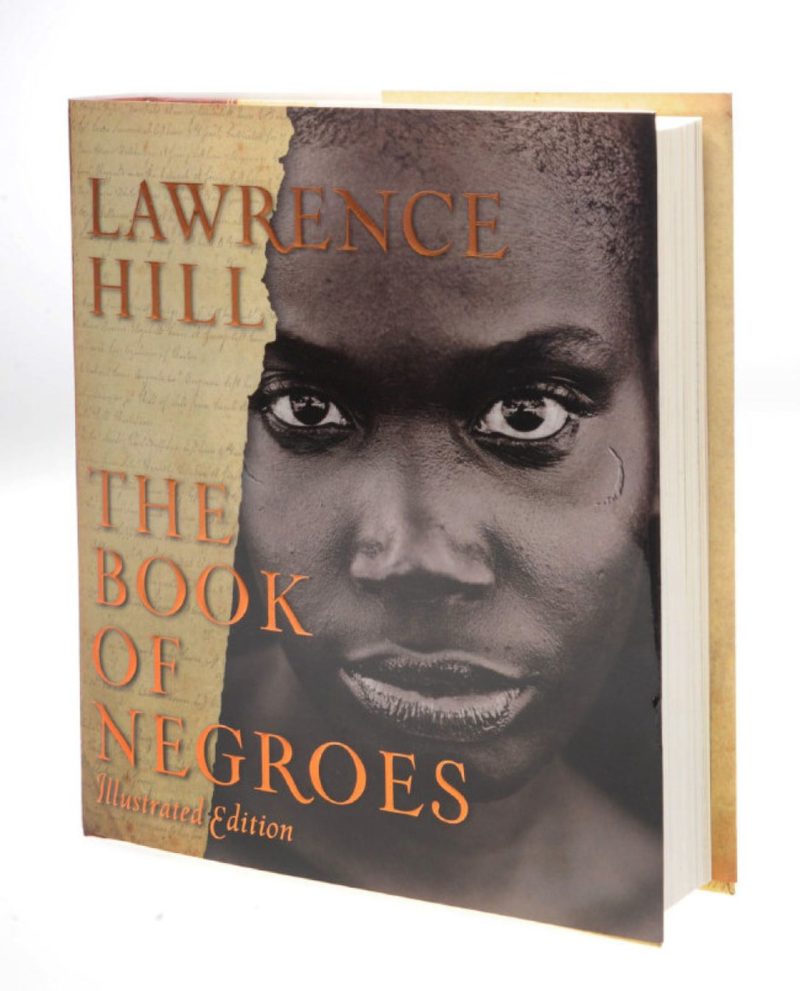We have watched, with shock and horror, the events of not just this month with the death of George Floyd, but of many racially motivated incidents before that. Our goal at DIVINE is of course, to be an escape, and help you make your life a little more divine. Reading is an escape, but it’s also a way to learn more, to empathize and to understand. As much as we try to be reflective of the country that we live in, we aren’t perfect and we will continue to do better, to try harder and to listen. Many have asked where they can learn more and there are a lot of great resources out there. We want to share books that we’ve already read that speak to the history and experience of black women. This is a monthly series that won’t be going away.
Our first book, “The Book of Negroes”, was written by Canadian author, Lawrence Hill and released in 2007. Hill is a professor of creative writing at the University of Guelph. He is also the author of ten books, but is best known for this award-winning novel. This is our first pick for a number of reasons. Hill, as mentioned is Canadian. He wrote the story from a woman’s perspective which is extremely difficult to do. It details a black woman’s journey in a way that is rarely ever told.
Interestingly enough, in order to be published in the United States, the title of the book was changed to “Someone Knows My Name,” – a switch that Hill himself had to make peace with. Here is the explanation, from The Guardian International Edition:
“I used The Book of Negroes as the title for my novel, in Canada, because it derives from a historical document of the same name kept by British naval officers at the tail end of the American Revolutionary War. It documents the 3,000 blacks who had served the King in the war and were fleeing Manhattan for Canada in 1783. Unless you were in The Book of Negroes, you couldn’t escape to Canada. My character, an African woman named Aminata Diallo whose story is based on this history, has to get into the book before she gets out.
In my country, few people have complained to me about the title, and nobody continues to do so after I explain its historical origins. I think it’s partly because the word “Negro” resonates differently in Canada. If you use it in Toronto or Montreal, you are probably just indicating publicly that you are out of touch with how people speak these days. But if you use it in Brooklyn or Boston, you are asking to have your nose broken. When I began touring with the novel in some of the major US cities, literary African-Americans kept approaching me and telling me it was a good thing indeed that the title had changed, because they would never have touched the book with its Canadian title.”
About the Book
Abducted as a child from her village in West Africa and forced to walk for months to the sea, Aminata Diallo is sent to live as a slave in South Carolina. But years later, she forges her way to freedom, serving the British in the Revolutionary War, registering her name in the historic “Book of Negroes” and eventually travelling back to Africa.
A sweeping story that transports the reader from a tribal African village to a plantation in the southern United States, from the teeming Halifax docks to the manor houses of London, The Book of Negroes introduces one of the strongest female characters in Canadian fiction, one who cuts a swath through a world hostile to her colour and her sex.
The Review
This book…it’s hard to say anything but those two words about this intricately told tale.
It came out thirteen years ago, and it is one that everybody should read. It will stay with you long after you close the book and move onto another. You will almost see, hear and smell what it was like for Aminata Diallo on the slave ship. Aminata is a character who is battered, but never broken. Hill created a story, weaving in history in a way that had never been done before. He vividly brought the American slave experience to life. He weaved in Canadian history, British history, African history. You felt every single emotion. No word was superfluous and at 511 pages, that’s saying a lot.
This is historical fiction; however, Hill is such a skilled writer that it feels like he went through all of the hardships that his Aminata had. It will open your eyes to current events in a timeless way. Slavery is an important part of the book, but the most important element is the courage and wisdom of Aminata. It’s not just about her journey from slavery to freedom. It’s about how she considers others despite her struggles. Her victory in the end is not large, but it is profound.
“The Book of Negroes” is a masterpiece pure and simple. Learning doesn’t just come from non-fiction. The time and dedication that Hill put in is evident. To truly understand oppression, sometimes you need to feel it through the lens of a heroine. That is exactly what Lawrence Hill was able to accomplish. This isn’t just our first selection in this series. We recommend it, because it is one of the best novels ever written.






